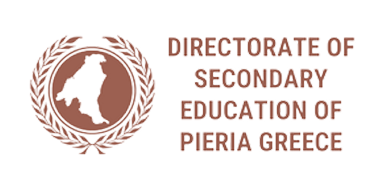With the challenges and demands of modern times, the fluidity of social, political, economic and cultural conditions due to rapid scientific and technological development, the educational system is expected to provide equal learning opportunities, to address social inequalities and to adapt to new realities and requirements for lifelong learning.
In addition, the importance of cultivating critical thinking skills, emotional stability and social cohesion, as well as preserving cultural identity and promoting humanistic values must be emphasised. Education policy must be adapted to develop responsible, democratic and free citizens without prejudice, promoting European identity and social cooperation.
There is an urgent need for an education system that promotes democracy, respect for human rights, peace and freedom. The aim is the comprehensive development of pupils’ personalities and their successful social integration through education. The main strands of this approach include providing general education, cultivating skills and interests, ensuring equal opportunities for all, strengthening cultural and linguistic identity, raising awareness of environmental protection, preparing for new technologies, physical, mental and social development, and raising awareness of human rights and world peace.
In many countries, the curriculum is divided into subjects with no horizontal links between them and fragmented into partial knowledge, often in isolation. This makes school knowledge fragmented, abstract and unconnected to the experiences and needs of the student population, and as a result it becomes uninteresting and boring.
A realistic proposal to address this problem is interdisciplinary and multidisciplinary teaching. In general, interdisciplinarity aims at integrating two or more subject areas, while multidisciplinarity refers to the organising of the curriculum in such a way that the contents of the distinct subject areas are related.
The Interdisciplinary Approach, a more general term than Multidisciplinarity, promotes horizontal and vertical interconnection and enables students to build up an integrated set of
knowledge and skills, a holistic understanding of knowledge, which enables them to form a personal view on science issues that are related to each other and to issues in everyday life. Particular emphasis is placed on environmental sensitivity and social justice.
For primary and secondary education, the objectives include the mitigation of social inequalities, the development of positive attitudes towards lifelong learning and ensuring internal coherence of concepts. For pupils with disabilities, provision is made for the development of individualised educational programmes adapted to their specific needs.
Interdisciplinary teaching uses learner-centred and team-working techniques and methods. The role of the teacher is both auxiliary and decisive, since it is the teacher who ensures the quality of the research.
The programme Interdisciplinary Approaches for Innovative Education – InterEd
But how is the new Erasmus+ InterEd programme relevant?
InterEd seeks to integrate a pedagogical methodology for secondary education, utilizing interdisciplinarity and PhenoBL, to help students acquire deep learning on relevant topics and develop transversal skills. Concurrently, secondary teachers will be enriched with ready- to-use resources for interdisciplinary teaching in their History, STEAM, Culture & Economics classes.InterEd develops a Compendium on Interdisciplinarity in Secondary Education; a Virtual Learning Lab with a framework of values and attitudes; and Interdisciplinary Pedagogical Micro-Unit Lesson Plans adopting PhenoBL approaches.
Source: YA 21072a/C2/2003 Government Gazette B 303 “Interdisciplinary Unified Framework of Curricula” http://www.pi-schools.gr/download/programs/depps/fek303.pdf
This blogpost was created by:



